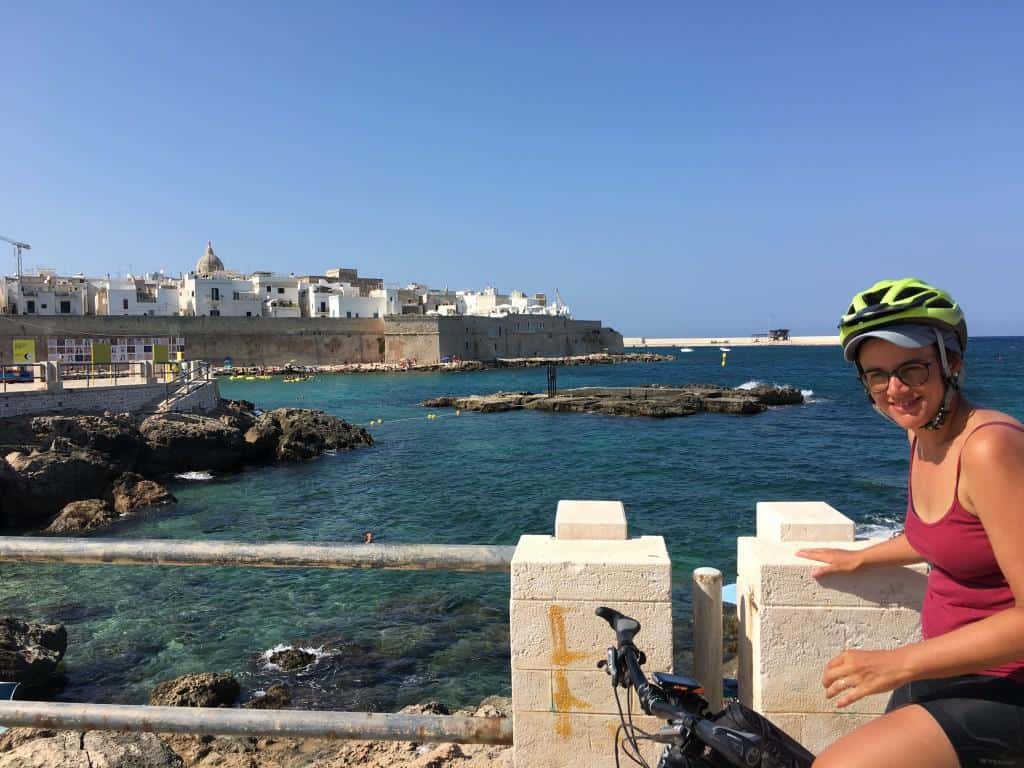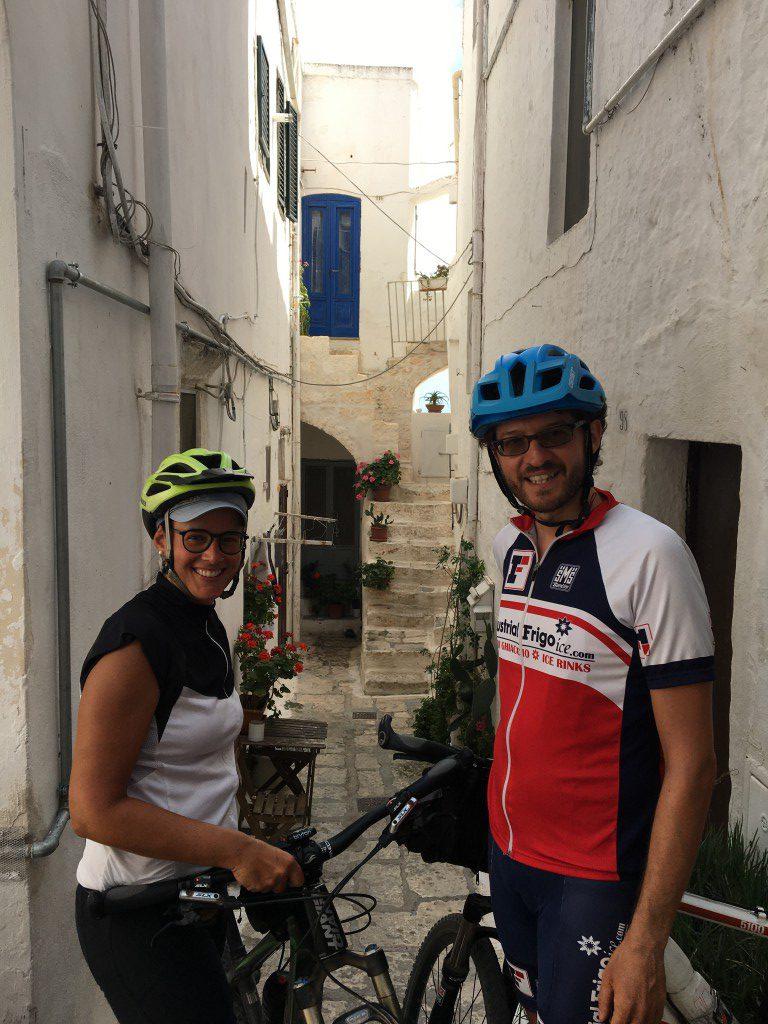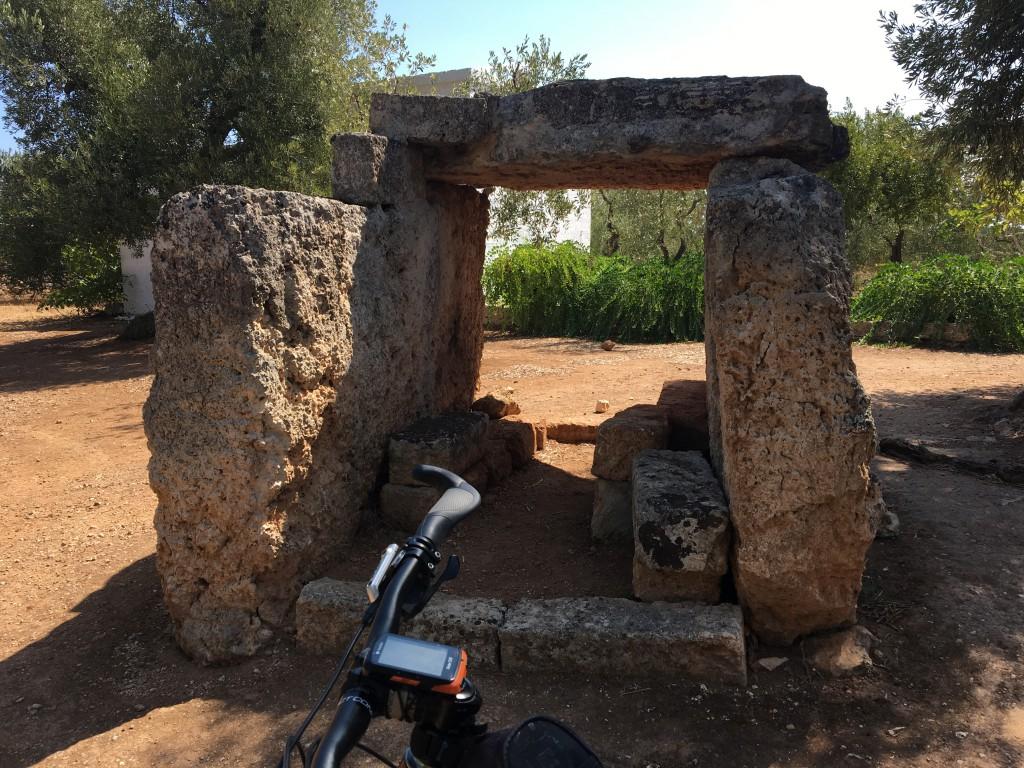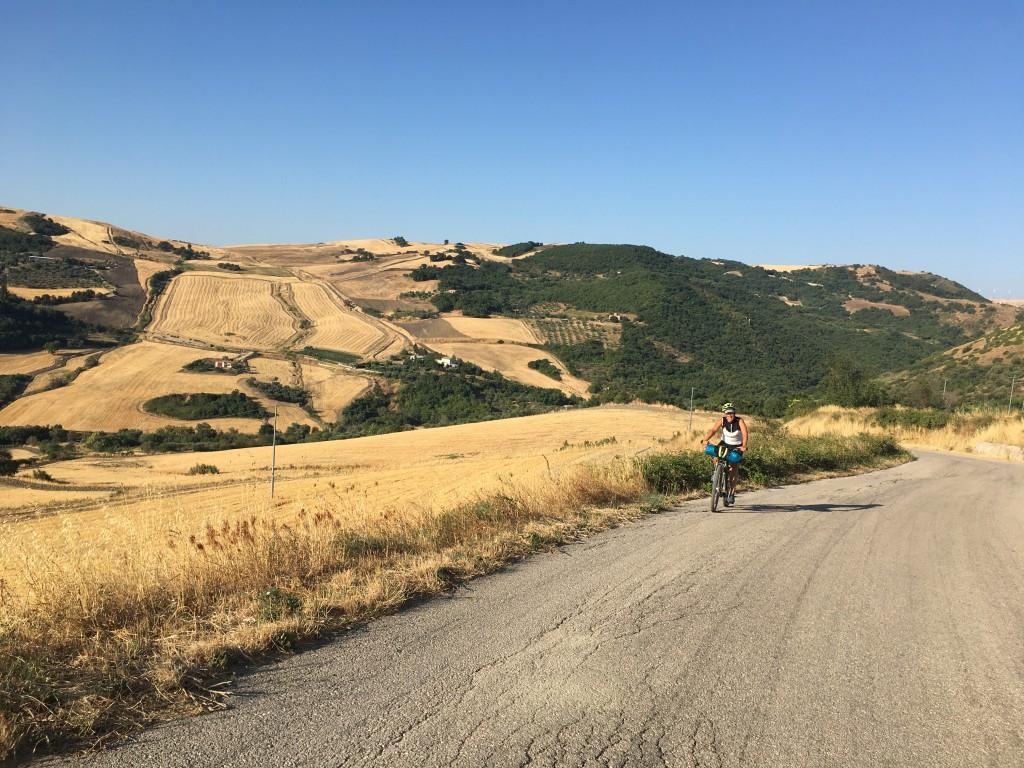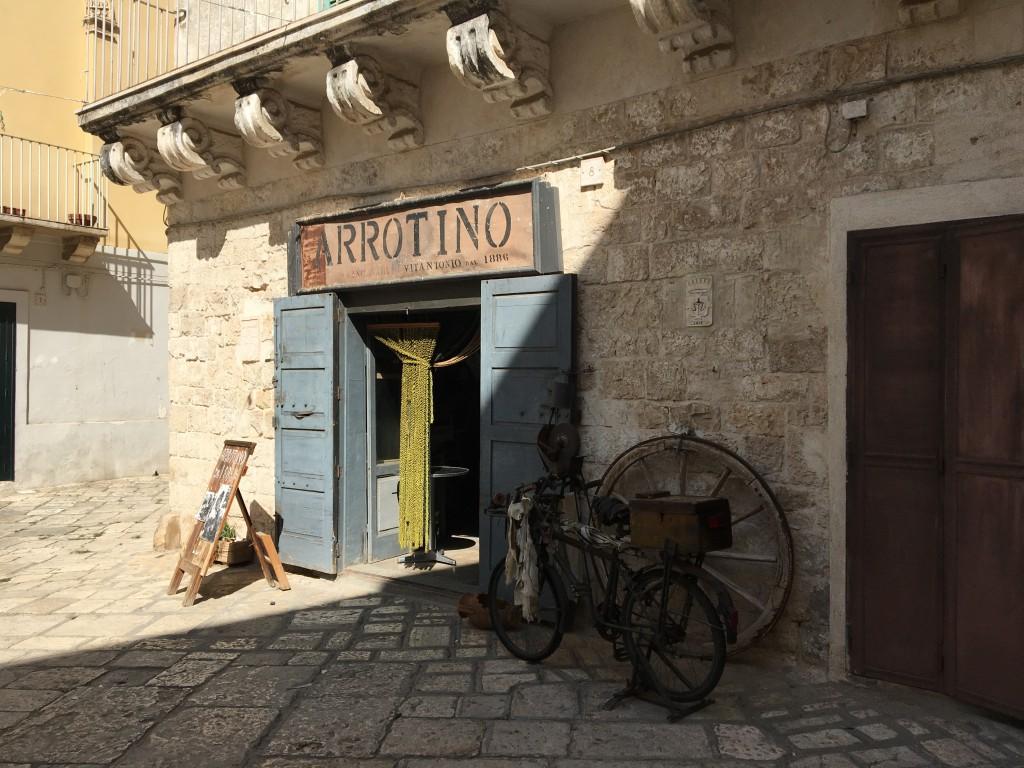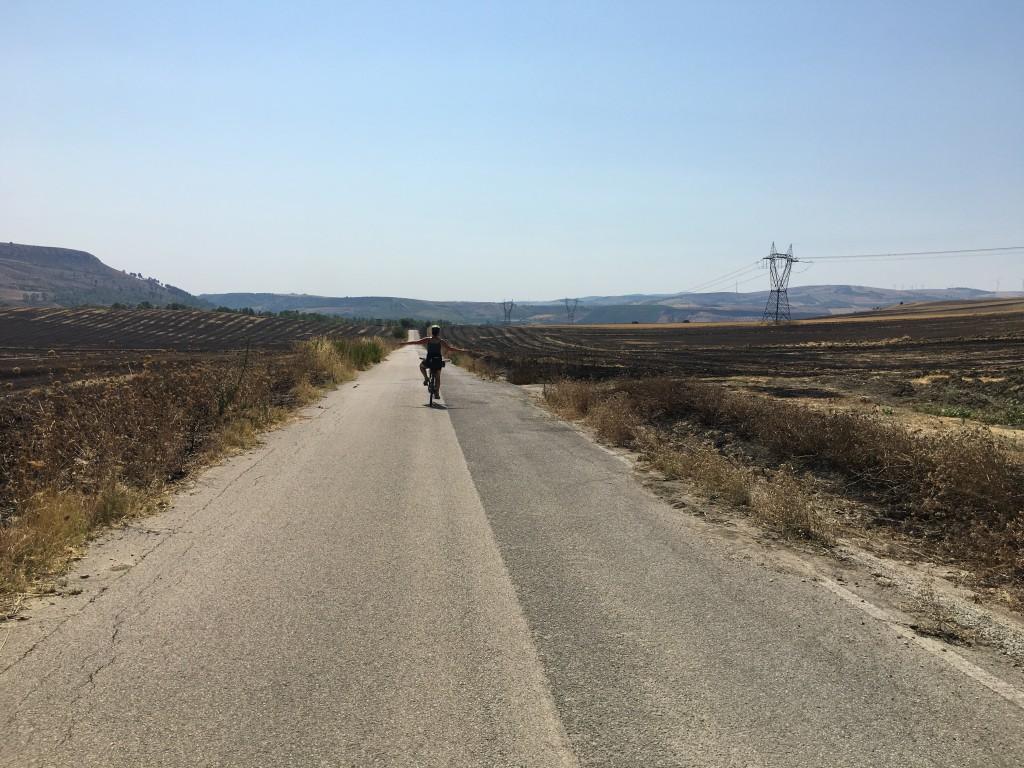Cycle tourism goes hand in hand with slow tourism.
While pedalling through unique scenery, well-preserved and renovated villages, and bike-friendly towns, a cyclist can appreciate every single moment of their bikepacking journey, respecting the environment.
Note: Emanuela and Eros are bikepackers who cycled the length of their native Italy in August of 2021. In this series, Emanuela covers bikepacking basics, trip-planning and gear, as well as travel challenges and how the duo overcame them.
The trip
After a year and a half of restrictions due to the coronavirus outbreak we decided to cycle through Italy, our country, from North to South. Every day we were surrounded by a different landscape. We met enthusiastic people who study and preserve their local traditions, growing organic food and working with nature. We hugged friends we hadn’t visited for years; met hosts who offered their guests their best services and products, and villagers who were curious about our trip and gave us a lot of juicy information about their territory.
The routes
Local https://www.battleface.com/blog/wp-content/uploads/2023/08/Partners-showcase-2.jpgistrations together with FIAB (Federazione Italiana Ambiente e Bicicletta – Italian Federation of Environment and Bicycles), ECF (European Cyclists’ Federation) and Euro Velo are working to improve cycling routes, to keep cyclists away from high traffic streets. We cycled through Euro Velo 7 and 5, and 90% of them were low-traffic roads, including safe cycle routes or gravel paths.
Bike-friendly B&Bs
With great pleasure we found out the existence of Albergabici, an association that lists cyclist-friendly accommodation.
We stayed in a different B&B each night, appreciating local food such as vegetables, extra virgin olive oil, wine, cheese, and handmade delicacies following recipes passed down through generations. The aroma of tomato sauce and basil in Tuscany, freshly baked bread, fields of nuts, frying garlic in Lazio and Puglia, and Buffalo mozzarella cheese in Campania cast a spell on us and we always had to stop to taste something typical.
Living history
We spotted women still making tomato preserves in their courtyard, or washing their clothes in wash houses, or gathering along alleys or in cosy small squares after dinner, bringing their own chairs, chit-chatting till late. We visited historic towns described by engaging tour guides such as in Benevento and Matera.
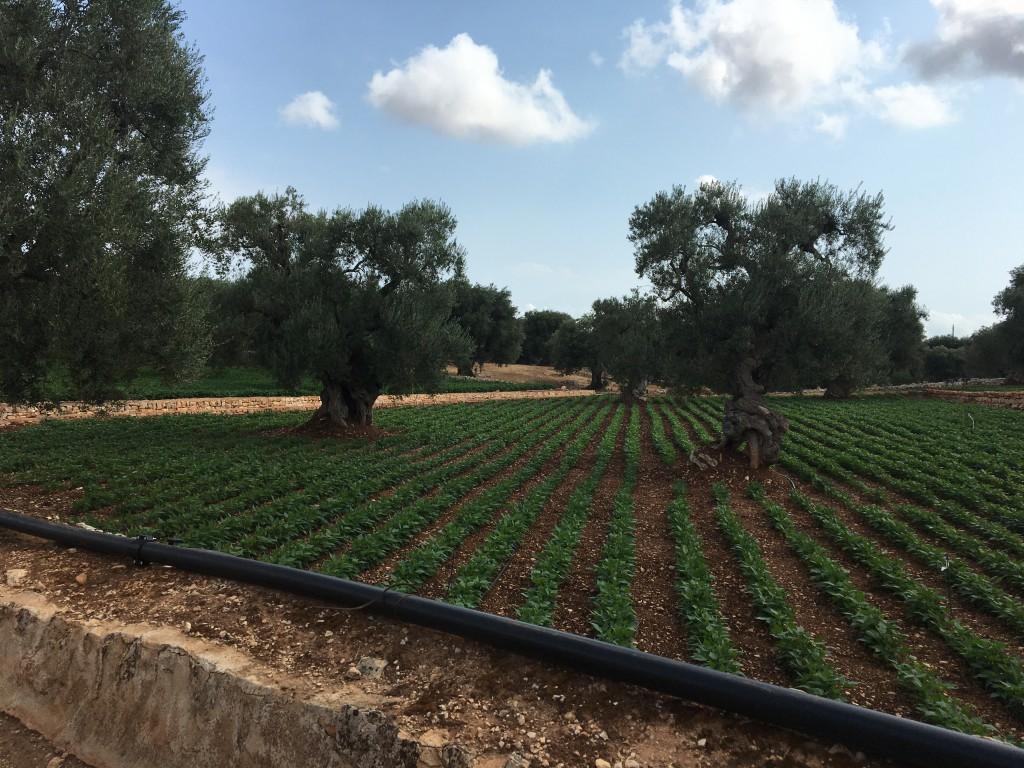 In Puglia, between Alberobello and Fasano, we admired endless fields of olive trees. Each of them is a real natural work of art, over a thousand years old. They really seem to dance in an eternal dance, and it was exactly amongst those anthropomorphic olive trees we started wondering how many historic events rather than disasters they survived and yet were still there, with strong as well as delicate and deep roots resembling a hand grabbing red coloured earth, a huge wrinkled knotty trunk, and a wide and generous canopy, providing extra virgin olive oil, a precious and natural medicine. Not to mention food: Panzerotti, Pasticciotti and Focapizza are a must!
In Puglia, between Alberobello and Fasano, we admired endless fields of olive trees. Each of them is a real natural work of art, over a thousand years old. They really seem to dance in an eternal dance, and it was exactly amongst those anthropomorphic olive trees we started wondering how many historic events rather than disasters they survived and yet were still there, with strong as well as delicate and deep roots resembling a hand grabbing red coloured earth, a huge wrinkled knotty trunk, and a wide and generous canopy, providing extra virgin olive oil, a precious and natural medicine. Not to mention food: Panzerotti, Pasticciotti and Focapizza are a must!
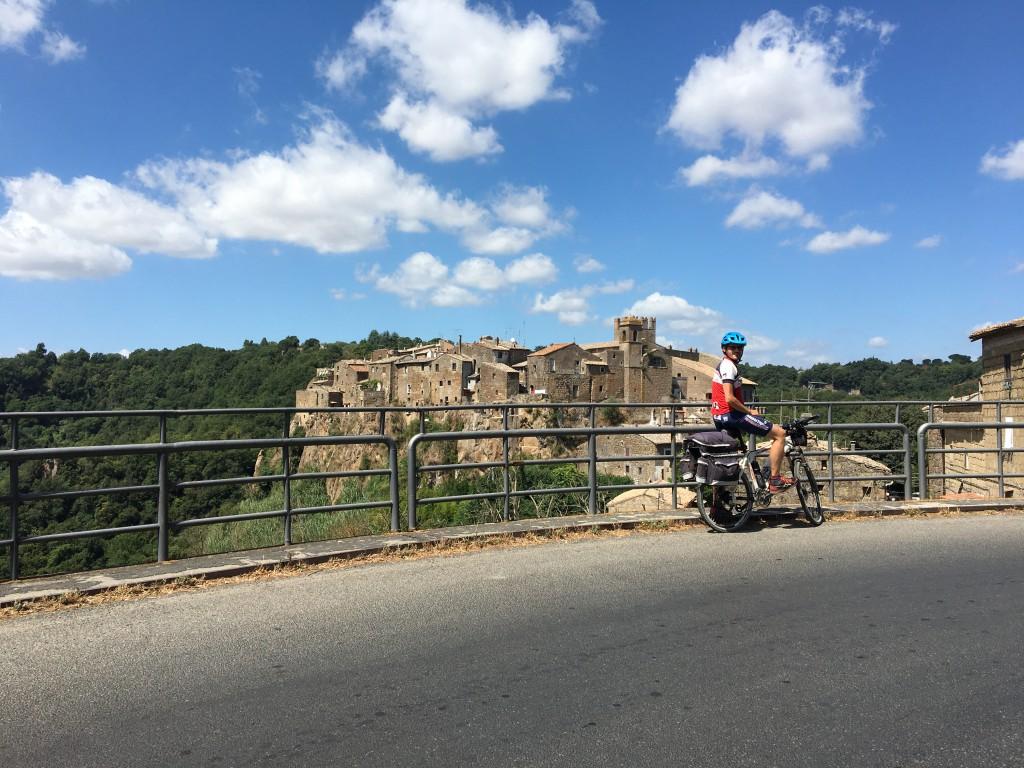 Connecting with locals
Connecting with locals
We felt home in every single village where we stopped. Villagers enjoyed delivering information about their history, traditions and sometimes they really pampered us. In Samone, Bologna, our host showed us his laboratory where he and his family have been producing raw ham and Parmesan cheese for 4 generations. Our hosts in Suviana, Bologna, a lovely old couple, told us the story of their life in an hour’s time, starting from the second world war till when they first met and got married! In Gallese, Candela and Fasano we experienced gratitude. After crossing the Apennines, we spent 2 days enjoying an azure and emerald sea in Capitolo, Puglia.
Did we have any difficult moments? Yes, we did.
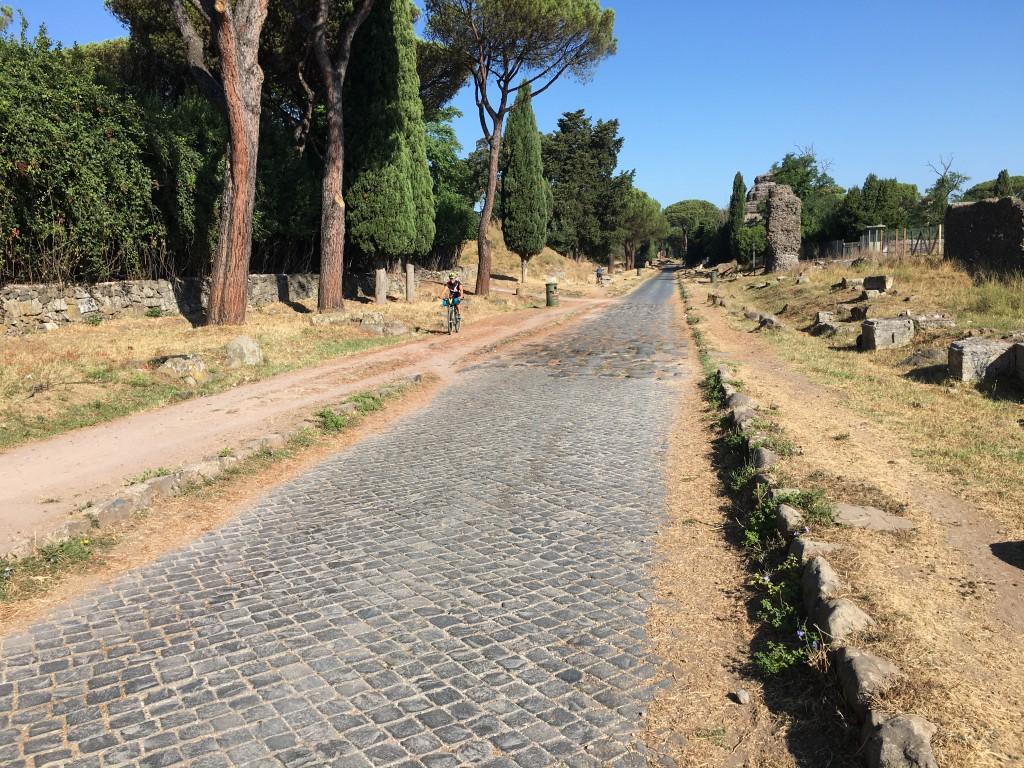 Hot as Hades
Hot as Hades
First: the temperature. In Italy it was called Lucifer! It was boiling but luckily windy. A hot wind but better than nothing. However, at 1 pm it was impossible to pedal so we started getting up at 5 am and leaving at 6, after a big breakfast.
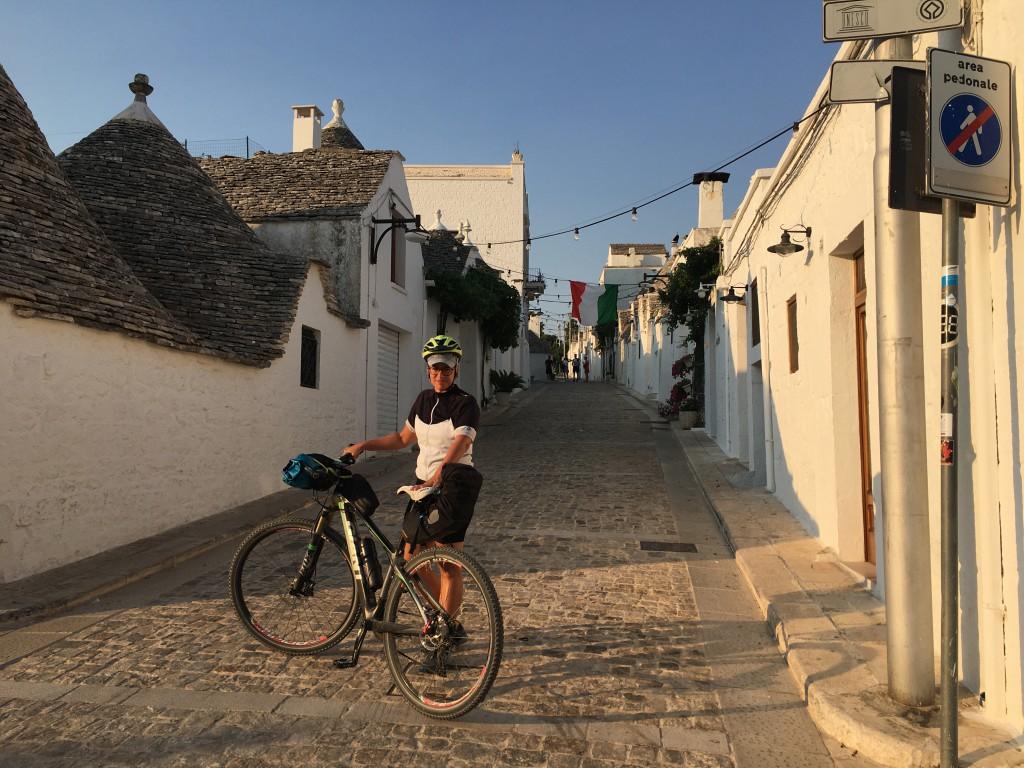 Bone-dry fountains
Bone-dry fountains
Second: no water coming out from drinking fountains for 70 kms between Veneto and Emilia. We found out that the local https://www.battleface.com/blog/wp-content/uploads/2023/08/Partners-showcase-2.jpgistrations closed them for hygienic reasons! No drinking fountains for 50 kms in Basilicata. Ok, there are cafes or supermarkets but for bikepackers, a drinking fountain is an indispensable resource because one can refresh and bring body temperature down. In Basilicata we found the first café after pedalling 60 kms. It was our oasis in the desert. The best water we have ever drunk!
The next day we found this fountain. Such bliss.
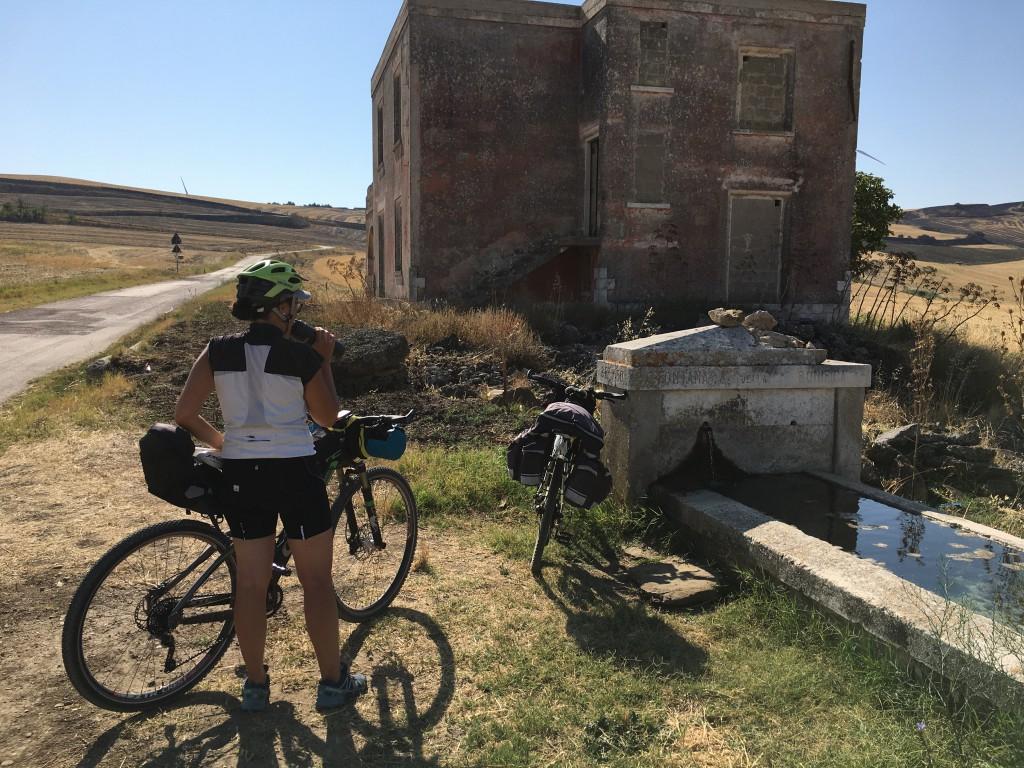 Tip: OpenCycleMap is quite useful to find points of interests such as drinking fountains to fill up your bottles or cool down your head!
Tip: OpenCycleMap is quite useful to find points of interests such as drinking fountains to fill up your bottles or cool down your head!
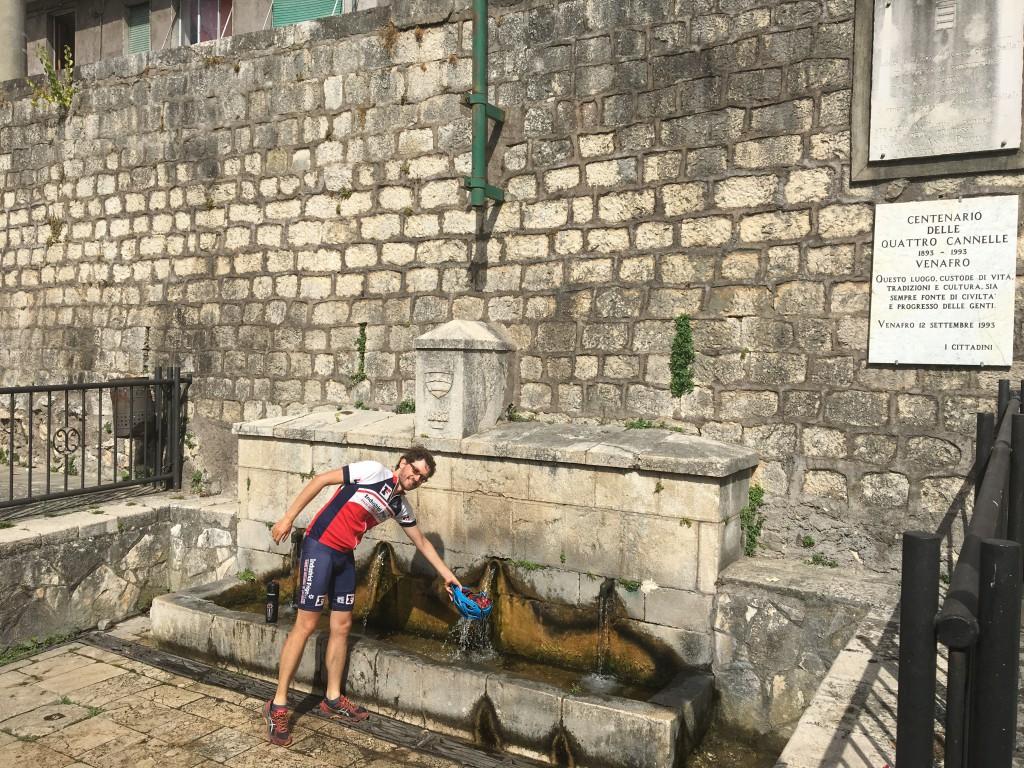 Brake-down
Brake-down
Third: a broken bike gear cable and worn-out brakes had to be substituted. We had forgotten to take spare brakes with us, so we spent a lot of time looking for a bike shop, but it was a Sunday. We were heading to Florence, not to mention descending some challenging slopes with no back brakes. Hurray.
We bought the brakes the following day in Figline Valdarno.
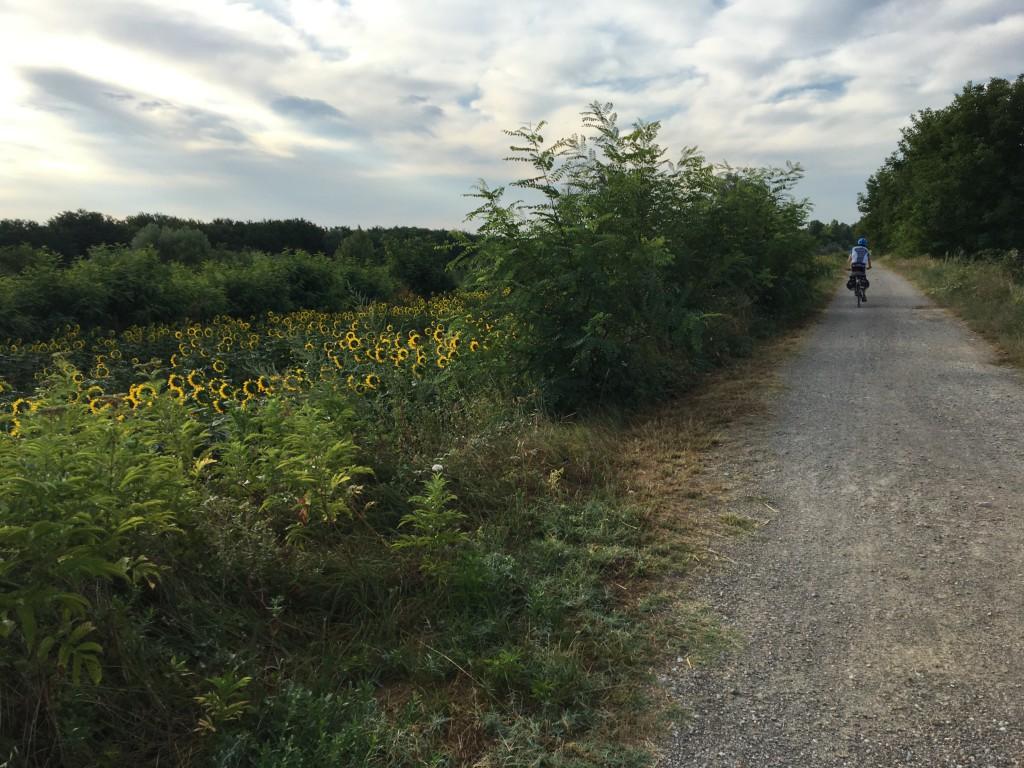 Dogs vs wheels
Dogs vs wheels
Fourth: small mongrels/mutts quietly sleeping on their doorsteps and then suddenly barking and chasing after us. It happened three times and we simply kept pedalling faster using our bottle as if it were a water pistol. Don’t waste too much water, just a few drops. I also screamed “Keep your dogs in your yard”! We don’t know whether it was the water pistol, me raising my voice, or us pedalling like mad, maybe the combination of the three things made them stop. Luckily it always worked.
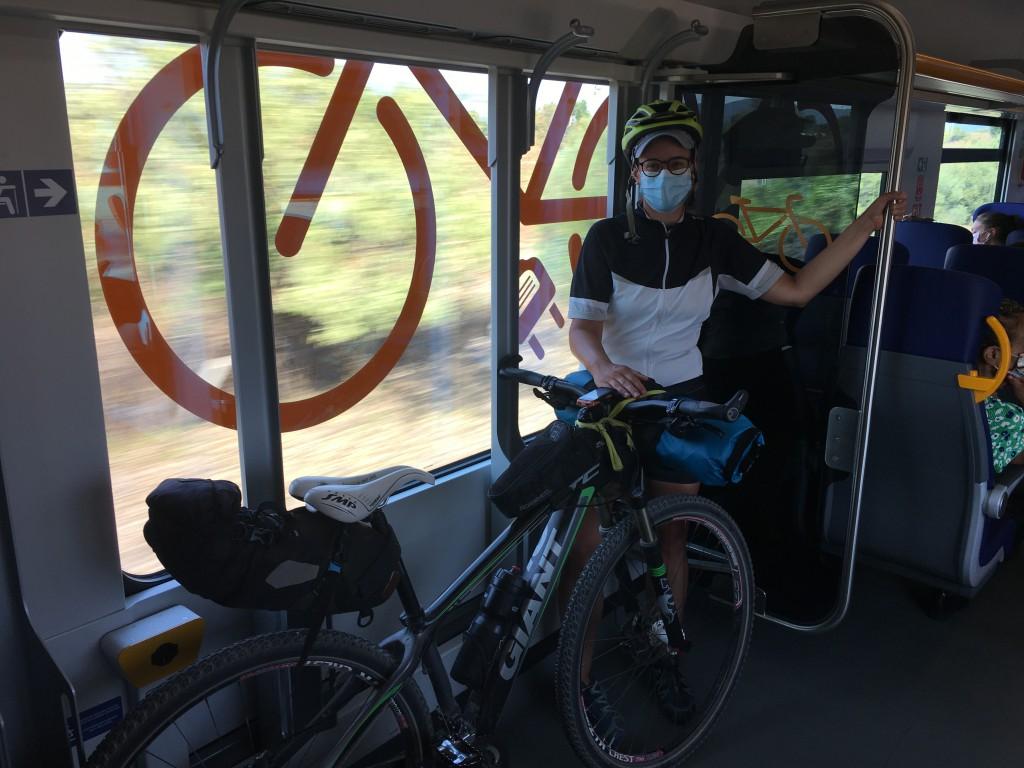 Getting home
Getting home
It was a long and exciting journey with lots of ups and downs, in every sense, but every single moment was worth it, since, it is when it comes experiencing some uncomfortable situations / discomfort, we start appreciating the beauty of things surrounding us, and are grateful for who we are and what we have.
We breathed fresh air without wearing our face masks almost all day long. All of us experienced what breathing our own Co2 means. Communing with nature and breathing freely will no longer be taken for granted.
When we came back home from our latest adventure, we had a clear feeling that the more investments are made in cycle tourism the more our planet will gain benefits.
